The Inflation Reduction Act of 2022, a comprehensive legislation that covers various areas including health, tax, and climate change, was signed into law by President Biden on August 16, 2022. One of the key focuses of the law is to address the issue of high prescription drug costs for Medicare beneficiaries and curb drug spending by the federal government. The provisions within the law are set to be implemented from 2023 onwards. The legislation that has received support from both political parties and the public aims to tackle the issue of increasing and exorbitant drug prices.
The drug pricing provisions in the law are expected to result in a $237 billion reduction in the federal deficit from 2022 to 2031, as estimated by the Congressional Budget Office (CBO).
Measures That Will Help With Prescription Drug Prices
The Inflation Reduction Act comprises two measures to tackle the issue of high drug prices which will help with healthcare costs in the long run. Firstly, it mandates the federal government to negotiate prices for high-cost drugs covered under Medicare that lack generic or biosimilar competitors. The Act applies to both Medicare Part D prescription drug coverage and Part B drugs and the eligible drugs must be nine or more years from FDA approval. The number of drugs to be negotiated is restricted to 10 Part D drugs in 2026, 15 Part D drugs in 2027, and 15 Part B and Part D drugs in 2028. The negotiation of another 20 Part B and Part D drugs will take place in 2029 and beyond. The amount of savings and beneficiaries that will benefit from this provision will rely on the number of drugs that undergo negotiation, the number of Medicare beneficiaries using those drugs, and the price reductions achieved through the negotiation process.
As a second policy, the Inflation Reduction Act will compel drug manufacturers to offer rebates to Medicare in case they hike prices for drugs used by Medicare beneficiaries more rapidly than the rate of inflation.
The implementation of the inflation rebate provision will occur in 2023, and it will use 2021 as the base year for determining the price changes relative to inflation. This provision could potentially reduce the out-of-pocket drug expenses for Medicare beneficiaries and could also result in slower price growth for drugs covered by private insurance. The number of beneficiaries that could benefit from this provision will be contingent on the number of beneficiaries using drugs that experience slower price growth and the extent of price reductions relative to baseline prices.
The Inflation Reduction Act includes various measures that will bring changes in the years 2023, 2024, and 2025 to reduce out-of-pocket expenses for Medicare beneficiaries.
In the year 2023, the Act aims to enhance the accessibility of adult vaccines through Medicaid and CHIP programs while also doing away with the cost-sharing obligations for adult vaccines that fall under Medicare Part D.
In 2024, the Medicare Part D benefit will be limited by capping the out-of-pocket spending of beneficiaries which will be capped at approximately 3250$. This could save beneficiaries thousands of dollars. The threshold for catastrophic coverage, which is currently $7,400 in 2023, will be eliminated for 5% coinsurance above the threshold. Moreover, annual increases in Part D premiums will be limited from 2024 to 2030. Also, the eligibility for full Part D Low-Income Subsidies (LIS) will be extended to low-income beneficiaries who have incomes up to 150% of the poverty level and modest assets. Moreover, there will not be a partial benefit of low-income subsidies for beneficiaries who have incomes between 135% and 150% of the federal poverty level.
Additionally, a cap of $2,000 will be implemented for spending in 2025. This means that beneficiaries will not be required to pay more than the cap amount for their out-of-pocket expenses for Medicare Part D in 2025.
Furthermore, the Act will also limit the cost-sharing for insulin to $35 per month for Medicare beneficiaries starting in 2023, which will include covered insulin products in Medicare Part D plans and insulin furnished through durable medical equipment under Medicare Part B.
When Will Medicare Part D Start Negotiating Prices?
The Medicare Part D program will begin negotiating prices with drug companies in 2026. The maximum fair prices for the first 10 drugs selected for negotiation will go into effect. In February of that year, CMS will announce 15 more drugs for price negotiation. By November 30, CMS will publish the maximum fair prices for the 15 drugs selected earlier in the year, and these prices will go into effect in 2028. Beginning in 2026, government reinsurance in the catastrophic phase of Part D will be 40% for drugs selected for negotiation in their applicability period. In 2027 and 2028, additional drugs will be selected for price negotiation, with maximum fair prices going into effect in subsequent years. The Centers for Medicare and Medicaid Services (CMS) will publish the maximum fair prices for 20 Part B or Part D drugs selected for negotiation earlier in the year by November 30. These maximum fair prices will go into effect in 2030. In 2029, additional drugs will be selected for the Drug Price Negotiation Program, and the maximum fair prices for the 20 Medicare Part B or Part D drugs selected for negotiation in 2027 will go into effect. By February 1, CMS will announce 20 more Part B or Part D drugs for negotiation. The maximum fair prices for these drugs will be published by November 30 and will go into effect in 2031.
Also, the Inflation Reduction Act incorporates a clause that prolongs the implementation of the drug rebate rule proposed by the Trump Administration. The rule, which was intended to be enforced in 2027, will now be delayed until 2032. If enforced, the rule would remove the anti-kickback safe harbor provisions for prescription drug rebates, which are negotiated between drug manufacturers and pharmacy benefit managers (PBMs) or health plan sponsors in Medicare Part D. According to estimates, this rule would result in increased spending by Medicare and higher premiums for beneficiaries.
These measures will certainly bring significant changes to the Medicare Part D program pocket drug costs and result in a reduction in annual out-of-pocket costs for seniors that are Medicare enrollees.








